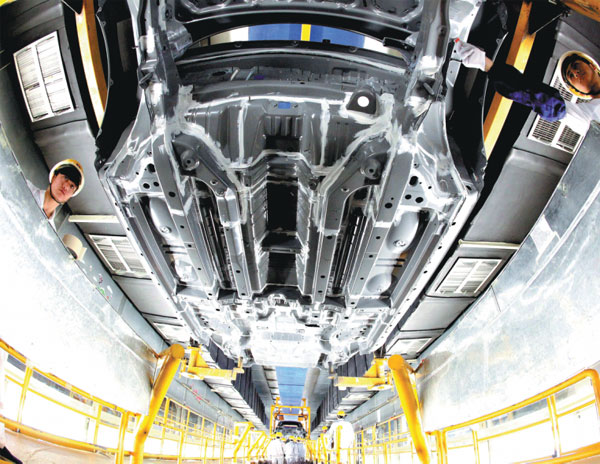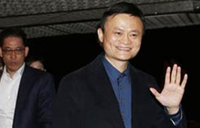China encourages high-tech imports to upgrade "Made in China"
(Xinhua) Updated: 2014-09-25 07:41
|
 |
| A production line at Jianghuai Automobile Co in Hefei, capital of Anhui province. JAC inked in 2012 an agreement with the US based GreenTech Automotive Corp to bring 2,000 battery powered electric vehicles to the US market. [Photo by Liu Qinli / For China Daily] |
BEIJING - China will use tax breaks to encourage enterprises to upgrade their equipment and increase research and development (R&D) efforts to improve the manufacturing industry.
|
 |
| 'Made in China' online enterprises on global mission |
Imported high-tech equipment will also enjoy tax deductions in aviation, bio-medicine production, manufacturing of railway and ships, electronics production including computer and telecommunications, instrument production and those used in making IT products and software.
The move aims to prompt technical improvement of companies, especially innovation of small and medium-sized enterprises, according to the meeting.
The meeting also asked government organs to implement the new measures as soon as possible to arm "Made in China" with advanced technology and equipment, encouraging more competitive products with high added value.
Analysts believe the measures will not only start a new round of innovation but also spur fixed asset investment, and in the bigger picture contribute to stabilizing economic growth.
Zhu Jianfang, chief economist of CITIC Securities, said the measures will lighten burdens of enterprises in the real term and prompt the upgrade of outdated equipment.
Combined tax deduction of A-share listed companies is expected to reach 233.3 billion yuan ($38 billion) in the first year after the policy takes effect, equal to 7.8 percent of their total cash flow in 2013, according to the calculation of the Shanghai Stock Exchange (SSE).
Zhu said three aspects of problems will be eased, citing weak domestic demand and investment amid slowing economic growth, lagging equipment in manufacturing sector and low technical level of homegrown companies.
Zeng Gang, analyst from the SSE, expects the move to help China's manufacturers greatly improve their global competitiveness and produce more self-invented merchandises.
"Under the guidance of the government, the enterprises will actively invest in fixed assets, upgrade their technologies and equipment, which will be a boon to current economic growth and nurture growth potentials in the long run," Zhu said.
- Govt encourages people to work 4.5 days a week
- Action to be taken as HIV cases among students rise
- Debate grows over reproductive rights
- Country's first bishop ordained in 3 years
- China builds Tibetan Buddhism academy in Chengdu
- Authorities require reporting of HIV infections at schools
- Typhoon Soudelor kills 14 in East China
- Police crack down on overseas gambling site
- Debate over death penalty for child traffickers goes on
- Beijing to tighten mail security for war anniversary







